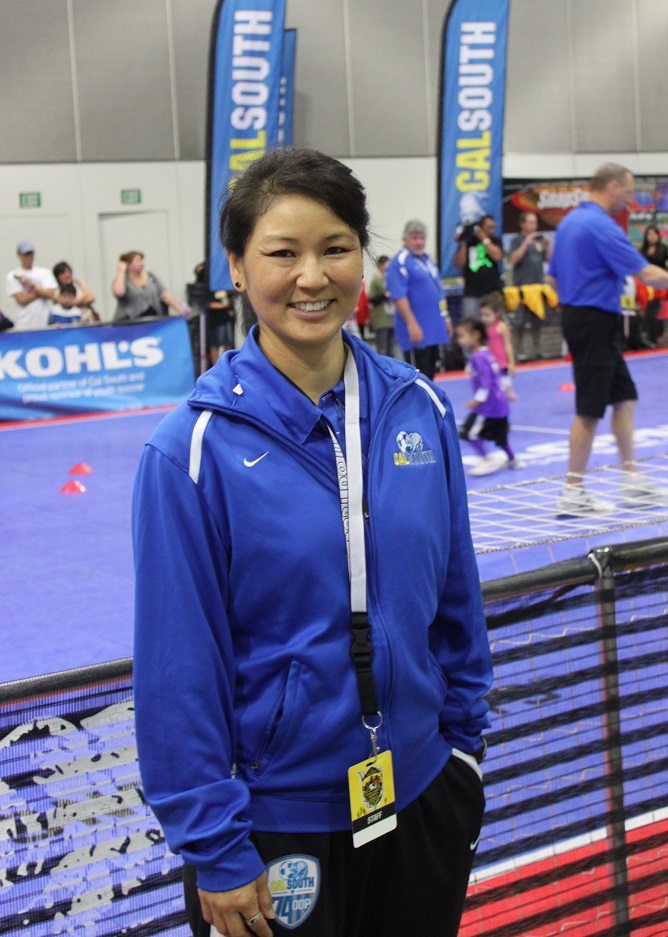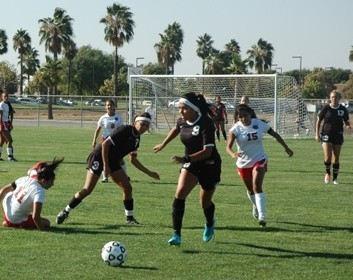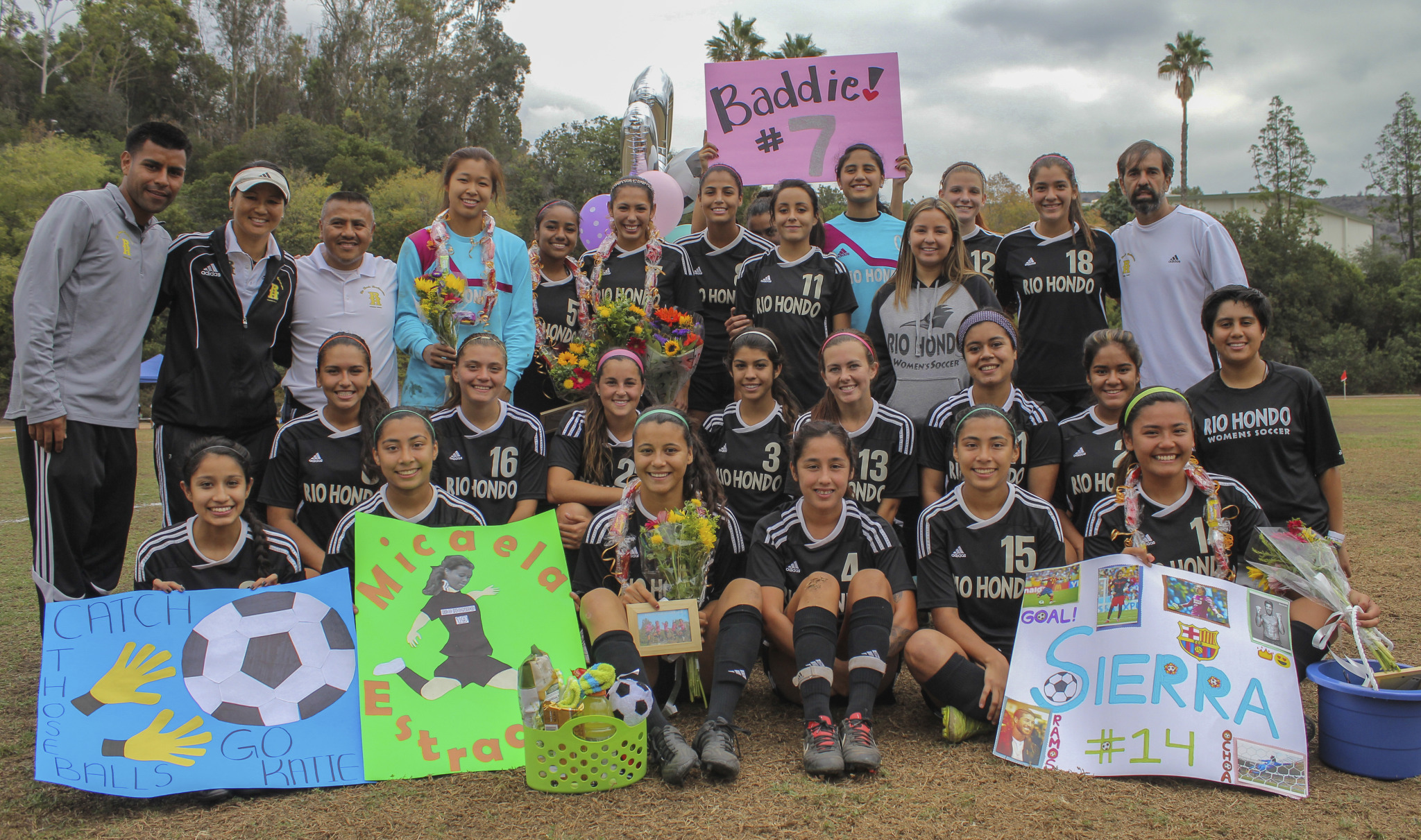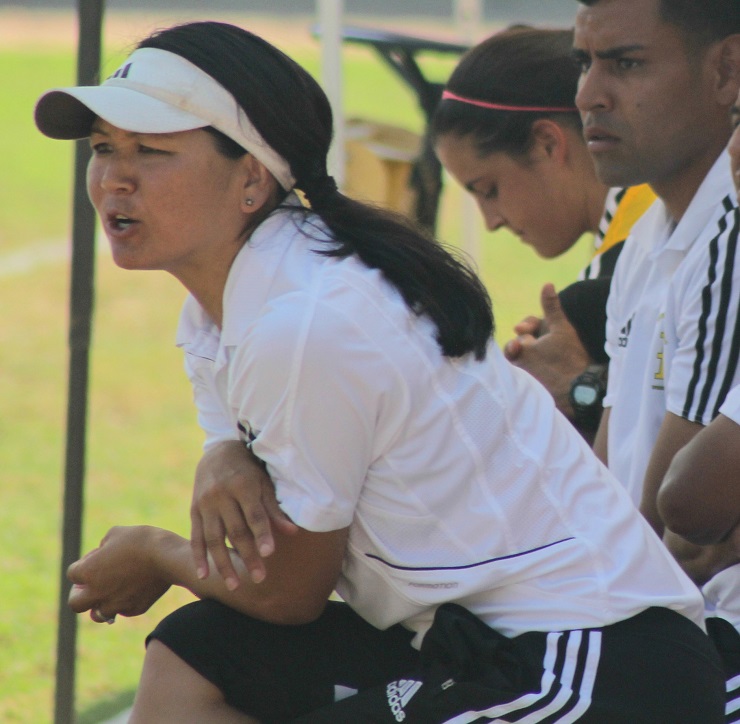SoccerToday’s Women In Soccer Series
Jennifer Tanaka has been coaching competitive youth soccer for over half her life. For over 20 years, she has trained or directed youth teams ages U10-U19 competing in the top leagues on the West Coast. Tanaka’s players have gone on to play at major universities as well to compete in the top women’s professional leagues around the world, the US and Mexican National teams, Olympics and even the World Cup.
SoccerToday interviewed Jennifer Tanaka, Cal South ODP Coach and Head Women’s Soccer Coach at Rio Hondo College.
Andrea Garcia: When did you first start coaching?
Jennifer Tanaka: I started coaching about 25 years ago at the age of 16 as a trainer for a youth club team — the head coach didn’t have any specific soccer experience and I had been playing for years. I loved coaching from the first practice.
 Andrea Garcia: Why do you coach?
Andrea Garcia: Why do you coach?
Jennifer Tanaka: I strongly believe that through soccer, coaches can teach players not only soccer skills but life skills that will help them in the future to be successful and productive citizens in the community. That chance to be a positive influence on a player and the chance to give back to the soccer community for all that I have received are the two big reasons why I coach.
I love working with our young people. It is extremely uplifting to see them learn a new skill as well as to witness the smile on their faces when they perform the newly acquired skill against an opponent. It is also wonderful to see players’ self-confidence grow as they learn more about the game as well as develop long-lasting friendships with their team members. I love to see these young players build their soccer abilities, learn the value of goal-setting and build their character day after day, year after year until they finally head off to college.
I enjoy the times when players whom I coached when they were young come back as adults, maybe with kids of their own, and say, “Hi” updating me on their life. I’ve been lucky enough to have been a part of many championships in club, high school and ODP, but that is not what I love most about coaching. I coach to get to see that smile kids get when they are growing as an individual and are happy!
Andrea Garcia: What inspires and excites you to continue coaching?
 Jennifer Tanaka: I love soccer! I can remember first playing as a little girl and trying to go to sleep in my uniform on the night before a game. I want to help encourage young players be that excited to play soccer.
Jennifer Tanaka: I love soccer! I can remember first playing as a little girl and trying to go to sleep in my uniform on the night before a game. I want to help encourage young players be that excited to play soccer.
No matter where I traveled in the world, if there were kids playing with a soccer ball, I’d go over and try and play with them. At first they would usually be hesitant, because in most countries girls/women don’t play soccer. But, once you juggled a little and knocked the ball around, the players would get this huge smile on their face. They just discovered that this crazy American woman could play a little soccer. This kind of engagement with kids gets me excited about coaching soccer. When I see that same smile on a player on a team I’m working with, I feel that same excitement again about coaching.
Andrea Garcia: What do you think are the fundamental differences between male and female coaches?
Jennifer Tanaka: I think the biggest difference among coaches, whether male or female is not whether a coach is male or female, but it is in the communication styles and past experiences of the coaches. Coaches, both male and female, vary in the manner they approach to work with their players. Some players need a softer more indirect communication style to lead them to their best game. I know many male coaches who have a softer delivery style as well as many female coaches who are very direct and “tough” in their coaching communication.
Andrea Garcia: What traits does a female coach need to survive and thrive?
 Jennifer Tanaka: All coaches, not just female coaches, need to always be true to knowing what their motivation is to coach our youth. To survive, coaches need to be a lifelong student of the game, to be a lifelong learner, to educate oneself through coaching courses, to listen to successful coaches, to travel the world and get to experience how other countries club systems develop players, to be open to getting feedback from others, and have the courage to make the tough decisions.
Jennifer Tanaka: All coaches, not just female coaches, need to always be true to knowing what their motivation is to coach our youth. To survive, coaches need to be a lifelong student of the game, to be a lifelong learner, to educate oneself through coaching courses, to listen to successful coaches, to travel the world and get to experience how other countries club systems develop players, to be open to getting feedback from others, and have the courage to make the tough decisions.
Athletes know when a coach cares about them and truly wants to help them become the best player and person they can be. The more knowledge about the game and experience a coach has will help a coach to “survive and thrive.”
Andrea Garcia: How important do you think it is to have the same sex coach if you are a girl (or boy)? Did you have any female coaches when you were a player?
Jennifer Tanaka: The importance of having a same sex coach to be a role model depends on the player. While it may be true that some players may need a same sex coach to see a role model, I believe that players can look up to a coach as a role model regardless of their gender. The important element that must be present between player and coach is a positive and respectful rapport.
I did not have any female coaches until I was in college when one of the assistant coaches was a female and I thought it was great.
As a female coach, I try my best to be a positive role model; I strive to walk the talk, emphasizing to players the importance of pursuing their education and of gaining knowledge through books or travel about the world around us. I pursued multiple graduate degrees because I love to learn, and I hope that I can instill a passion to learn in all of my players.
Andrea Garcia: What needs to change so that more female coaches make it?
Jennifer Tanaka: It’s obvious we need more qualified female coaches to be coaching. Every USSF national coaching course I have ever attended had less than 4 females as compared to more than 50+ male candidates enrolled.
How can we change this? I’m not sure, but I hope that as more of our girls are involved in learning the game, some of them will continue on to endeavor to become coaches.
 Andrea Garcia: What do you think about the state of women’s soccer in the USA?
Andrea Garcia: What do you think about the state of women’s soccer in the USA?
Jennifer Tanaka: I think we are looking very strong entering the World Cup and surely have a chance to win it. I think the national team has some great young players that have come along in the past few years. Combining these younger players with the veteran players will make for a great, balanced team that will be in the hunt for another trophy. The NWSL had some great games last year and I’m looking forward to seeing some new players get a chance to show what they can do while many big name players are off with their national teams in preparation for the World Cup.
Andrea Garcia: Do you encourage your players to watch women’s soccer?
Jennifer Tanaka: Yes, absolutely! Watching soccer is a must to improve an individual’s understanding of the game. Although it is getting easier to see more and more top level women’s soccer live and on TV, it is still difficult to achieve the level of exposure and immersion to the game that would equal most foreign players. Luckily with the explosion of live feeds online, important games can be watched on the computer. That wasn’t possible 5 years ago.
Andrea Garcia: Is it hard to balance personal and work life if you are a soccer coach?
Jennifer Tanaka: The most difficult thing about balancing your personal life, work, and coaching is trying to find enough hours in a week to do everything. I can remember when I was working, coaching and getting a graduate degree, there wasn’t much time for anything extra.
It is tough to balance everything, but someone told me once that if it were easy, “everybody would be doing it.” I know that I want to offer my athletes everything I have to offer. As a coach I have training several times per week, games or tournaments on weekends all the while working a full time job. I also try to find time to get out and spend time with my friends or pursue other leisure activities. I’ve always worked full time along with coaching soccer so it’s like having two full time jobs all year. My friends always laugh because they know I need to fit any leisure time activities around training or games, and most likely leisure time takes a back seat.
 Andrea Garcia: Looking back what advice would you give yourself?
Andrea Garcia: Looking back what advice would you give yourself?
Jennifer Tanaka: I wouldn’t change much. I’d live my successes and failures because I feel each one helped to shape me. One thing I would tell my self is to travel the world and play soccer, just like they did in the movie PELADA. While traveling around for work and soccer, I learned one thing: Soccer really is an international language. If you can play a little, it doesn’t matter if you can’t speak the language of the country you are visiting. You’re usually welcomed with open arms once you show them you can juggle and knock the ball around with a smile on your face.
Andrea Garcia: What has been your greatest obstacle to success?
Jennifer Tanaka: Defining what success means to me has been one of my greatest obstacles. Our society often defines success directly with the numbers of wins, championships, and trophies you have obtained. I view success as empowering players to develop a great work ethic and to embrace a strong character that will carry them farther than their last goal or championship trophy. I know I have been successful when former players and parents come back to let me know how I had a positive impact on the player’s life.






